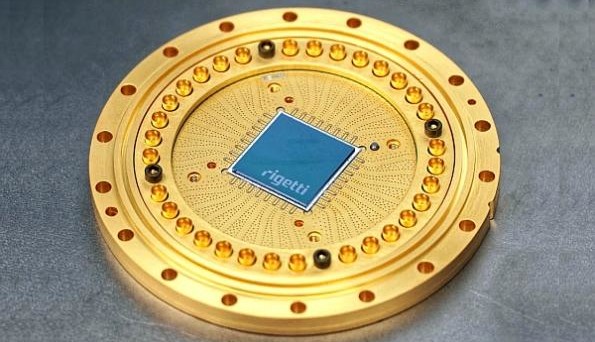19-qubit processor performs unsupervised machine learning
December 26, 2017
on
on

Rigetti Computing have demonstrated that one of their superconducting quantum processors is capable of performing a type of machine learning that may contribute significantly to artificial intelligence (AI).
Reportedly unsupervised machine learning was observed on Rigetti’s 19-qubit superconducting quantum processor, the 19Q. Unlike supervised machine learning, where the output of an algorithm is known based on "labeled" training data, unsupervised machine learning offers the potential to solve complex problems using just input data, with no training data set and where outcomes are unknown.
Unsupervised machine learning is currently used in a variety of applications, including bioinformatics for sequence analysis and genetic clustering, in data mining for sequence and pattern mining, in medical imaging for image segmentation, and in computer vision for object recognition
In their demonstration, the Rigetti team used a quantum/classical hybrid algorithm for clustering that they developed. According to Rigetti, the 19 qubits in their processor make this the largest such hybrid demonstration to date.
The 19Q processor is available as a programmable backend in Forest. The company also announced the latest version of its quantum development environment — Forest 1.2.
Report: Unsupervised Machine Learning on a Hybrid Quantum Computer .
Reportedly unsupervised machine learning was observed on Rigetti’s 19-qubit superconducting quantum processor, the 19Q. Unlike supervised machine learning, where the output of an algorithm is known based on "labeled" training data, unsupervised machine learning offers the potential to solve complex problems using just input data, with no training data set and where outcomes are unknown.
Unsupervised machine learning is currently used in a variety of applications, including bioinformatics for sequence analysis and genetic clustering, in data mining for sequence and pattern mining, in medical imaging for image segmentation, and in computer vision for object recognition
In their demonstration, the Rigetti team used a quantum/classical hybrid algorithm for clustering that they developed. According to Rigetti, the 19 qubits in their processor make this the largest such hybrid demonstration to date.
The 19Q processor is available as a programmable backend in Forest. The company also announced the latest version of its quantum development environment — Forest 1.2.
Report: Unsupervised Machine Learning on a Hybrid Quantum Computer .
Read full article
Hide full article


Discussion (0 comments)